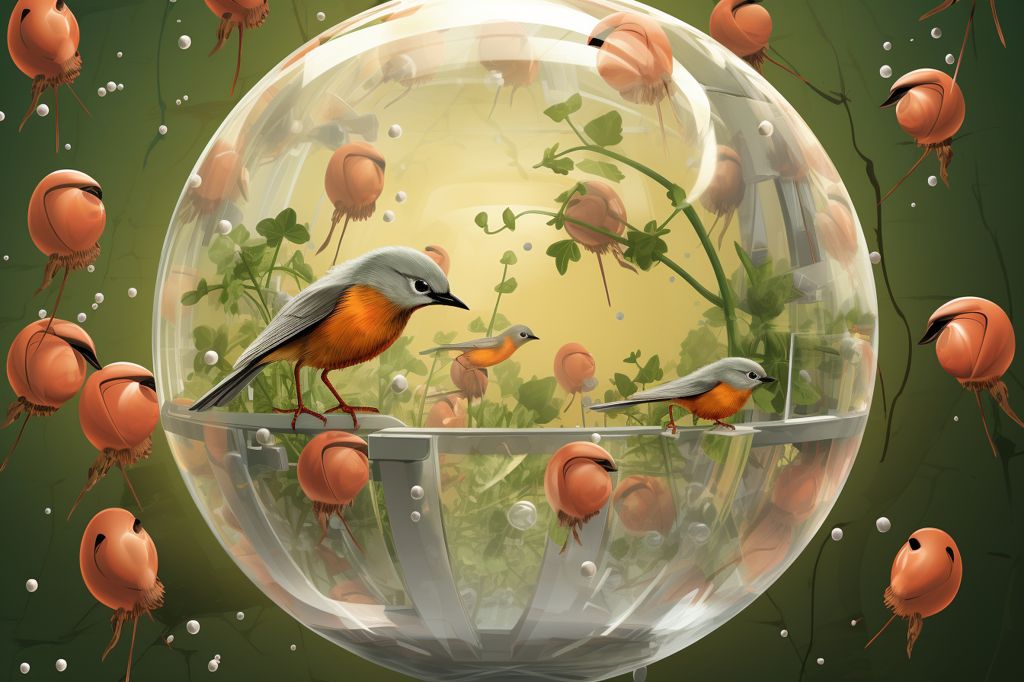The Current State of HPAI Outbreaks in South Africa
South Africa is facing a series of highly pathogenic avian influenza (HPAI) H5 and H7 outbreaks, which pose a significant threat to the country’s poultry industry. As of September 21, 2023, the nation has recorded 50 HPAI H7 outbreaks and 10 HPAI H5 outbreaks, resulting in substantial losses within the poultry sector. This article discusses the actions undertaken by the South African Department of Agriculture, Land Reform, and Rural Development to tackle these outbreaks and mitigate their impact on the industry.
The Gauteng Province has experienced the most severe HPAI H7 outbreaks, with a total of 37 recorded cases. Other affected provinces include Mpumalanga, Limpopo, Northwest, and Free State. HPAI H7 has led to the death of 107,705 chickens and the culling of an additional 1,318,521, accumulating in a total loss of 1,426,226 chickens.
On the other hand, Western Cape Province is dealing with the majority of HPAI H5 outbreaks, having reported seven cases. KwaZulu-Natal Province has also recorded three HPAI H5 outbreaks. This strain has caused the death of 98,249 chickens and the culling of 1,156,283 more, resulting in the total loss of 1,254,532 chickens.
Government Action to Address the Outbreaks
The rise in H7 and H5 PCR positive farms has led the department to stress the importance of biosecurity measures on poultry farms to lower the risk of introduction. To address the situation, the department has facilitated the import of fertile eggs for the broiler industry and may consider a similar request for table eggs. Moreover, the department is assisting eSwatini in transporting fertile eggs for broiler production.
The use of vaccination is critical in controlling these outbreaks. The department has held discussions with vaccine registration regulators and agreed to expedite vaccine registration without jeopardizing safety, efficacy, and quality. This is particularly relevant due to the high likelihood of the avian influenza virus mutating and becoming zoonotic.
The vaccination criteria are nearly complete, with only farms maintaining good biosecurity and receiving department approval allowed to administer vaccines. Other prerequisites encompass surveillance for early detection of incursion and the compulsory slaughter of vaccinated chickens.
Emphasizing Biosecurity and Cooperation
In order to reduce the impact of these outbreaks, the department advises producers to enhance biosecurity measures on their farms. Basic precautions should concentrate on preventing contact with wild birds and their fecal material, which can be carried on boots and equipment. Any suspicion of disease should be reported promptly to the nearest State Veterinarian.
The department’s strategy for fighting these outbreaks incorporates a combination of approaches, including importation, vaccination, and biosecurity. In collaboration with the poultry industry, the department aims to minimize the effects of HPAI H5 and H7 outbreaks and prevent further setbacks in the sector.
The prompt action and coordinated efforts of the Department of Agriculture, Land Reform, and Rural Development highlight the necessity for proactive measures to protect the poultry industry. By striking a balance between rapid response and ensuring vaccine safety, efficacy, and quality, the department is well-equipped to tackle the current outbreaks and safeguard the future of South Africa’s poultry sector.








